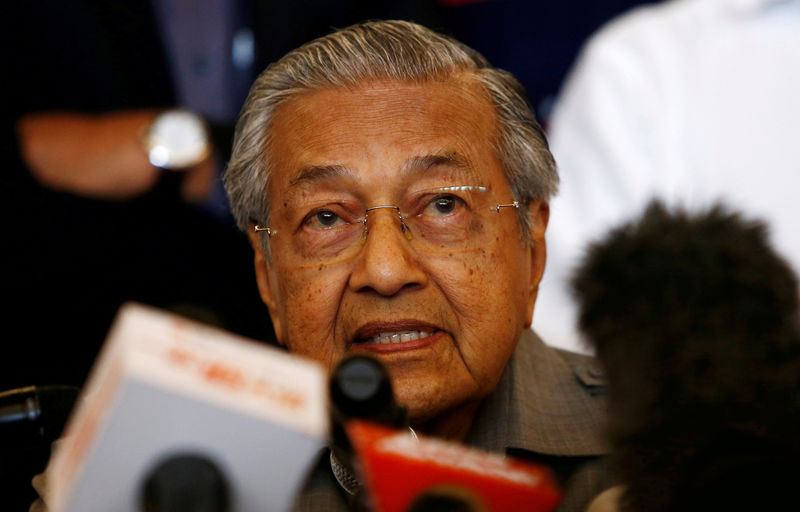KUALA LUMPUR (Reuters) - Malaysian Prime Minister Mahathir Mohamad called for a review of the Trans-Pacific Partnership trade agreement, saying smaller economies like Malaysia were at a disadvantage under the current terms.
In an interview with Japan's Nikkei published on Saturday, Mahathir said the trade pact - which includes Japan and Canada - should take into consideration the level of development of various countries.
"Small, weaker economies must be given a chance to protect their products," Mahathir told the Japanese financial daily. "We have to review" the TPP.
Mahathir's call to review the TPP agreement would be a blow for the 11-member trade pact, which was finalize after tough negotiations earlier this year following the withdrawal of one of the original signatories, the United States.
The Comprehensive and Progressive Agreement for Trans-Pacific Partnership (CPTPP), as it is now called following the U.S. withdrawal, will reduce tariffs in countries that together amount to more than 13 percent of the global economy - a total of $10 trillion in gross domestic product. With the United States, it would have represented 40 percent.
Mahathir did not reject the significance of agreements such as the TPP and he did not say whether he would consider leaving the trade pact altogether, Nikkei reported.
The 92-year-old took over as Malaysia's prime minister last month after a stunning election victory over Najib Razak, promising to stamp out corruption and lower living costs.
He has immediately embarked on reviewing several projects and agreements signed by the Najib government. The premier has pulled out of a high speed rail project with Singapore and is reviewing a $14 billion local rail line to be built by Chinese companies.
In the Nikkei interview, Mahathir said his government "must review all agreements" entered into by the previous administration, including infrastructure, trade and security pacts.
He said Malaysia will review the Code of Conduct on the South China Sea, which is being negotiated between Beijing and the Association of Southeast Asian Nations (ASEAN).
Nikkei reported that Mahathir reiterated Malaysia did not want the presence of warships in the South China Sea and the Straits of Malacca.
